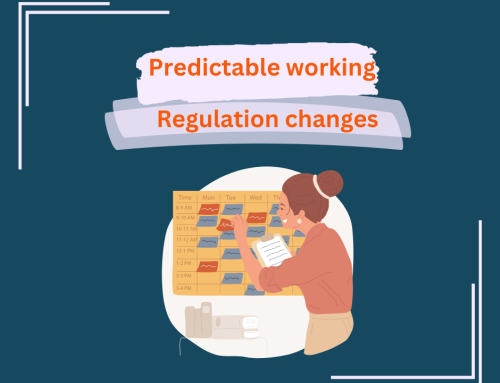One in every four people endure mental health problems, and an estimated 70 million working days are lost due to mental health in the UK each year. This morning, on National Stress Awareness Day, I attended a Mental Health in the Workplace session by Collingwood Legal. It was an informative and inspiring morning, with a helpful legal outline presented by Principal Solicitor Paul McGowan, and a personal testimony and suggested guidelines to stay mentally fit, by writer Jeremy Thomas.
You’ll doubtlessly agree that it’s just good practice to look out for the health of those around us, but I was also staggered to learn that mental health problems cost employers an estimated £30 million a year. How can we guard our own mental health? And how can we support those in our workplace to help take care of theirs?
Prevention is better than cure
Manage your stress levels Jeremy suggested using an app like Freedom, which allows you to disconnect from the internet for a selected length of time. No more pings to alert you and distract you, allowing you time to focus fully on an important task, or perhaps switch off. I have found that developing the skills to prioritise, delegate and say no when necessary are liberating, empowering and have given my productivity a huge boost.
Get good sleep It can be easy to fall into the trap of burning the candle at both ends. There can often seem to be so much to do, but so little time to do it. Many of us have fallen into habits of working so hard and so long that we burn ourselves out at times- and that’s no good for anyone.
Keeping a healthy perspective, and recognising that perfection may not be possible, helps us to draw a line and switch off. Take a walk, get your body tired, turn off your screens, cut out the caffeine; curl up with a hot milk, a good book and a lavender sachet under your pillow, and take some time to relax and give thanks as you unwind for the night. Richard used to ask me: “Is this something worth losing sleep over?” The answer is almost always “No!”
Have a routine When I get busy, one of the first things to fall by the wayside is regular meals. I’ll often work through lunch, and I’ll sometimes skip breakfast. When we do this, our bodies are running dangerously low on fuel, and it affects our performance, mood and mental health. We then may be more likely to grab some junk food to quickly get rid of the hunger pangs- resulting in a sugar crash, lethargy and weight gain, which compound low mood.
Sometimes, sitting down to a proper meal sounds like too much effort, or even an impossibility. But, when we fuel our bodies properly, we feel better and we work better. We have a better perspective, a chance to appreciate and enjoy life and the opportunity to relax and build relationships with others. Eating well keeps us healthy emotionally and physically, so well worth prioritising.
Around the structure of meals, adding sport, service, hobbies and family is much easier, ensuring a really healthy work/life balance, and a healthy mind.
Exercise Keeping active has such a positive impact on both our physical and mental wellbeing. We know it! But do we prioritise it?! It increases our chances of living longer, helps us feel better about ourselves, decreases likelihood of depression, helps us to sleep and maintain a healthy weight, allows us to relax and can provide opportunities to develop friendships. Training for a marathon is excellent, but a brisk walk for 20 minutes every day is great, too. What’s stopping you?! (Now, what are you going to change to make it happen?!)
Keep targets realistic Jeremy suggests keeping your to-do list to just three things. This is a great way to prioritise, focus and feel a sense of achievement, without being overwhelmed.
Manage your anger It’s important to remember that anger is sometimes justified and a right response to a situation. Anger needs to be addressed, identified, managed, and dealt with rather than hidden or buried, where it is likely to fester, grow and erupt in an uncontrolled way. Take time to cool off and to consider how best to address the situation. Take up a sport that allows you to get rid of some of the pent- up energy or frustration you may feel, in a productive way.
Be proud Don’t allow others to put you down. Don’t talk negatively about yourself either.
Talk about it Take the time to explain to someone you trust about how you feel. Employers should make sure lines of communication are open for employees to talk openly and frankly and their mental health, before it becomes a problem (and, also, when it does!) Talk to a friend or family member, a counsellor or a bloke down the pub…but don’t bottle it up!
Mental Health First Aid offer some fantastic resources that teach you how to recognise those crucial warning signs of mental ill health. They help teach people how to identify, understand and help a person who may be developing a mental health issue, so have a look at their website for some additional support and training.
Warning signs
When we are physically ill it seems much easier to take time off to rest and recuperate when necessary. With mental illness, we can often feel a sense of embarrassment or shame to admit there’s a problem, and the vicious cycle of stress means we can be too fraught to accept that some time off to recover is required, and in everyone’s best interests in the long term. In this case, mental health problems can often reach crisis point, before they are appropriately addressed and result in serious illness and long term absence.
Jeremy identified some warning signs that we can look out for in ourselves and others. As a rule of thumb, noticing 4 or more signs over a period of a few weeks is an indicator to seek immediate professional help.
- Feelings of hopelessness or pessimism
- Feelings of worthlessness, guilt and helplessness
- Thoughts of death or suicide
- Restlessness
- Irregular sleep
- Decreased energy
- Changes in mood
- Insomnia
- Difficulty making decisions
- Appetite and weight loss
- Persistent sad, empty or anxious mood
- Tearfulness
How to help
Since 54% of people surveyed said that their depression was caused, at least in art, by problem at work, it is important that employers think about how they can support their staff. Paul identified that employers have control over a range of factors, including:
- workload
- work variety
- work relationships
- culture
- communication
- bullying
What changes do you have to make to assure mental health for those in your organisation?
It is important that line managers are adequately trained and encouraged to support their staff to manage their mental health. A culture of openness and awareness about mental health and regular one-to one meetings, built on trust, means that lines of communication and support are open, workloads are monitored and staff don’t start to feel overloaded or unduly stressed.
If an employee or employer has concerns about mental health, Collingwood Legal give the following advice, when engaging in difficult discussions:
- Find an appropriate place- should be in private
- Ask open questions eg. How are you doing?
- Listen and respond appropriately
- Develop an action plan
- Encourage people to seek advice and support
- Ensure confidentiality
- Give reassurance
The Equality Act 2010 imposes a duty on employers to make reasonable adjustments to premises or working practices to support applicants or employees with a disability (which, of course, includes long term mental ill health).
Suggested reasonable adjustments for mental health include:
- flexible hours
- phased return/reduction of hours
- change of work area
- working from home
- break times
- providing a quiet room or space
- time off for counselling or therapy
- reallocation of tasks or amending duties
- redeployment
- increased support from manager and monitoring workload
- extra training or mentoring
Mental health problems, as we have seen, are very costly to businesses in the UK, but it is so important to remember the human cost too. At today’s session, we talked about the value of raising awareness and removing the stigma of mental health, so we can reduce embarrassment or shame and enable sufferers to recognise the signs and access help before reaching crisis point. On #NationalStressAwarenessDay it seems appropriate to (somewhat tentatively and shakily) raise my own hand and count myself as one of the one in four who have suffered mental ill health. Although stress resulted in me taking 9 months off work 3 years ago, today, from my vantage point running a successful and fulfilling business, I see my battle with mental ill health as a real blessing. It took me on a very unplanned (and unsought) journey into self-employment (read about it here) and taught me some very valuable lessons about how to keep my mental health in good order.
By practicing some of the good habits listed above, I have never been more resilient or mentally strong. So, there you have it! Some risk management advice that’s been tried and tested. And, it really works!
Talbot Jones Risk Solutions is an insurance brokerage specialising in SMEs, Charities and Professions. If you would like to work with a chartered insurance broker and a company who know and care about their clients, get in touch to discuss how we can support you.





